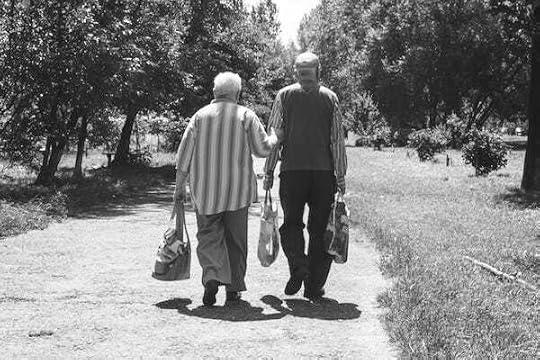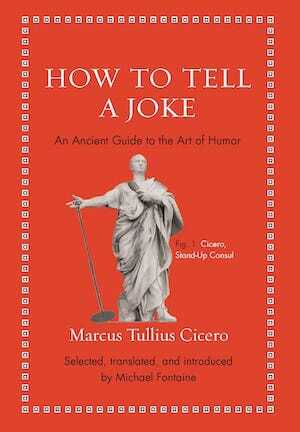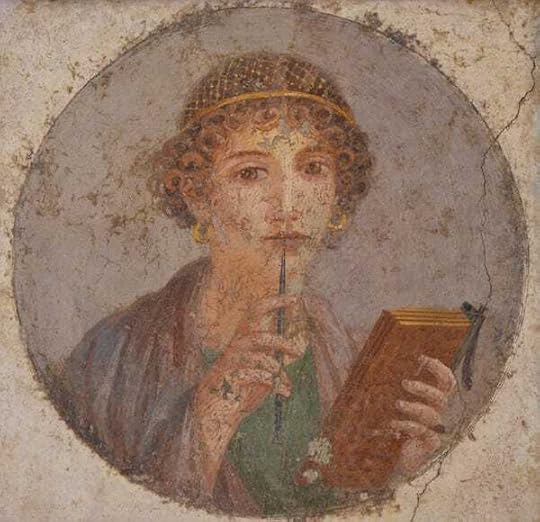Massimo Pigliucci's Blog, page 22
December 22, 2023
Facing old age and death: a study in contrasts
 Image from pxhere.com.
Image from pxhere.com.“We do not suddenly fall on death, but advance towards it by slight degrees; we die every day.” (Seneca, Letter 24.19)
Aging and death have been on my mind more than usual, of late. Not because I’m particularly old, yet. Nor because I’m facing imminent demise, that I know of. Rather, I’ve been interacting on and off with two relatives, let’s call them Eda and Oddo (not their real names!). They have given me much to reflect on because they are both older than I am (and about ...
December 20, 2023
Suggested Readings
 Woman with wax tablets and stylus (so-called "Sappho"), Naples Archeological Museum
Woman with wax tablets and stylus (so-called "Sappho"), Naples Archeological MuseumHow a few days sailing in the Aegean changed my mind about the fundamental nature of things. A few years ago, my wife, Sarah, and I went on a sailing trip on the eastern Aegean. It was heaven: the two of us out at sea, charting a course between Greek islands and the coast of Turkey, taking turns helming the boat and dozing below, surrounded by all the glittering blue of the sea. As we hopped from port to port, I c...
December 18, 2023
Aristotle and the ultimate good
“Let us go back again to the good being sought, whatever it might be. For it appears to be one thing in one action or art, another in another: it is a different thing in medicine and in generalship, and so on with the rest. What, then, is the good in each of these? Or is it that for the sake of which everything else is done? In medicine, this is health; in generalship, victory; in house building, a house; and in another, it would be something else. But in every action and choice, it is the end i...
December 15, 2023
How to tell a joke with Cicero and Quintilian

[Based on How to Tell a Joke: An Ancient Guide to the Art of Humor, by Cicero, translated by Michael Fontaine. Full book series here.]
I probably don’t need to remind my readers of the accomplishments of Marcus Tullius Cicero (106-43 BCE): public advocate, orator, senator, Consul, savior of the fatherland (pater patriae), philosopher, and occasional poet. But did you know he was also one of the two funniest men of antiquity?
At least, that’s what Macrobius (flourished around 400 CE) says in a lite...
December 13, 2023
Suggested Readings
 Woman with wax tablets and stylus (so-called "Sappho"), Naples Archeological Museum
Woman with wax tablets and stylus (so-called "Sappho"), Naples Archeological MuseumA Stoic work of art? Most of the teachings we have from the ancient Stoics are from three Romans: Seneca, Epictetus, and Marcus Aurelius. As the Stoics were primarily concerned with the development of virtue, art (or aesthetics) was not a frequent or well-developed topic (at least in the writings we have). Seneca does briefly describe art as the “imitation of nature.” He also makes clear in his letters to Lucilius...
December 11, 2023
Epicurus and the three kinds of pleasures
“It should be recognized that within the category of desire certain desires are natural, certain others unnecessary and trivial; that in the case of the natural desires certain ones are necessary, certain others merely natural; and that in the case of necessary desires certain ones are necessary for happiness, others to promote freedom from bodily discomfort, others for the maintenance of life itself.” (Letter to Menoeceus, 2)
December 8, 2023
From ancient to new Stoicism: VII—Some modest suggestions
 The Stoa of Attalos, in the Athenian Agora; notice the Acropolis in the background. Photo by the Author.
The Stoa of Attalos, in the Athenian Agora; notice the Acropolis in the background. Photo by the Author.Well, it is now my turn! After having examined the ancient versions of Stoic physics (i.e., science), logic, and ethics, as well as three modern attempts to update Stoicism (Becker’s, Stankiewicz’s, and Gambardella’s), this essay is devoted to a series of modest suggestions by yours truly.
Let us begin with a couple of disclaimers. First, this is very much a work in progress, and therefore inco...
December 6, 2023
Suggested Readings
 Woman with wax tablets and stylus (so-called "Sappho"), Naples Archeological Museum
Woman with wax tablets and stylus (so-called "Sappho"), Naples Archeological MuseumA different take on E.O. Wilson. Here is a Roman joke: Two old friends who haven’t seen each other in a while happen to meet in the street. One says to the other: “Oh, hi! I thought you were dead!”
“What on earth makes you say so?”
“Well, all of a sudden people were speaking well of you …”
That joke came to my mind when I read three short tributes to biologist E.O. Wilson in Skeptical Inquirer (May/June 2022). Wilson...
December 4, 2023
Epictetus on what is or is not reasonable
“For a rational being, the only unbearable thing is unreasonableness, but anything reasonable is bearable. Being beaten isn’t in itself unbearable.
‘What do you mean?’
Look at it this way: the Spartans submit to being flogged once they’ve realized that it’s a reasonable thing to do.
‘But being hanged is unbearable, isn’t it?’
Except that when a person feels that it’s a reasonable thing to do, he’ll go and hang himself.
In short, if we look carefully, we’ll find that nothing distresses a rational bein...
December 1, 2023
The Columnist and the Dog: a tale of two ascetics
 Left: Symeon the Stylite, 1901 illustration by W. E. F. Britten; Right: Alexander the Great visits Diogenes at Corinth, by W. Matthews, 1914. Images from Wikimedia.
Left: Symeon the Stylite, 1901 illustration by W. E. F. Britten; Right: Alexander the Great visits Diogenes at Corinth, by W. Matthews, 1914. Images from Wikimedia.On 27 February 380 CE Christianity became the official religion of the Roman Empire. This was the doing of the Emperor Theodosius I, who decreed Nicene Christianity to be the only acceptable belief. Anyone following alternative versions of the religion was thereby labeled a heretic and a “foolish madman,” and authorities where given f...



